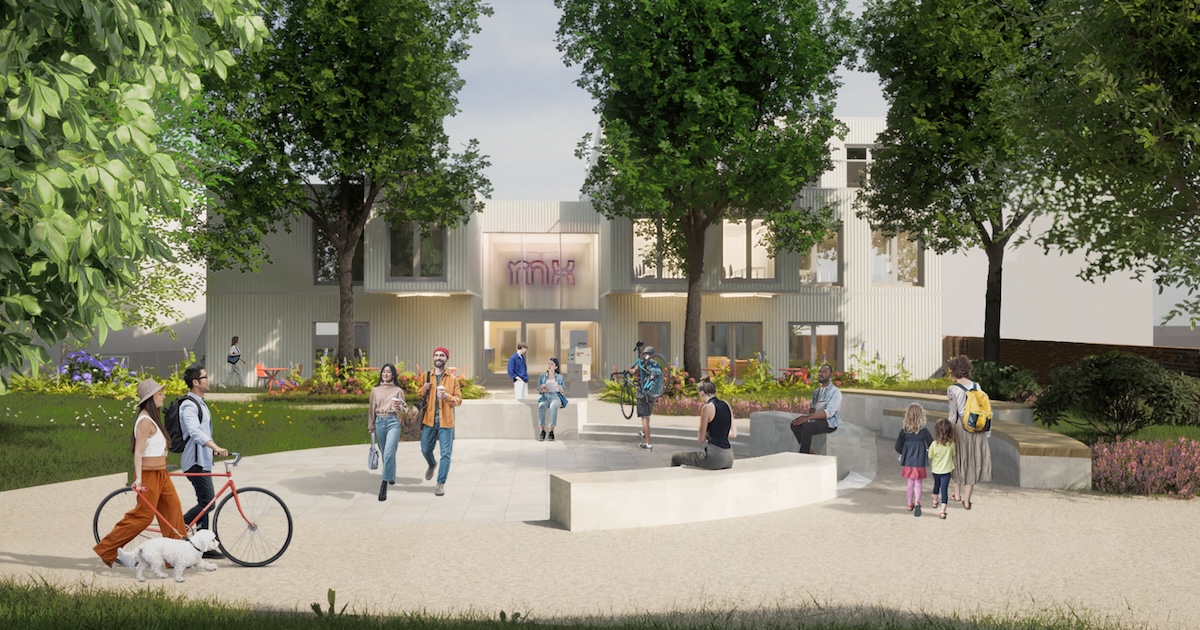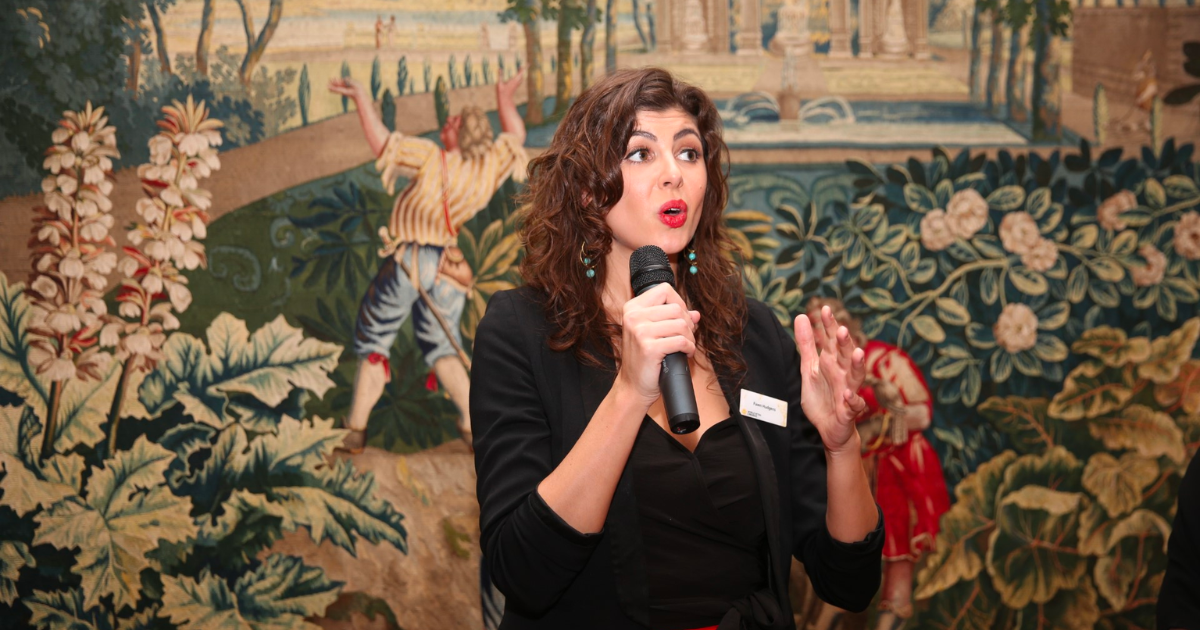At Plexal we have diverse, inclusive and collaborative community but we know that these are extremely stressful and emotional times following the deplorable events that have taken place in recent weeks. So we’re very grateful that many of our Black members have taken the time to add to our list of resources, which we’re compiling to help contribute to the conversation and improve levels of understanding.
We’ve compiled a series of views on how the tech, startup and business worlds can tackle racism, ignorance, under-representation and bias.
We can all do better, so do read these thoughts, have discussions in your businesses and boardrooms and consider what actions you can take to address racism and bias and ensure it’s not tolerated on your watch.
Racism has absolutely no place in our workspace.
We’ve always had a passion for telling stories about our community and we’ll continue to tell the stories of our Black members and help them grow their businesses. Let’s keep talking, keep learning and keep ourselves accountable.
If you’ve got any resources to add, please let us know on connect@plexal.com
Views from our community
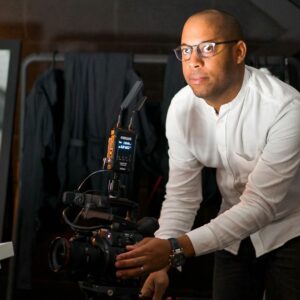 Simeon Quarrie, founder, VIVIDA (a LORCA cohort member)
Simeon Quarrie, founder, VIVIDA (a LORCA cohort member)
The truth is that there is a systemic level of racism in the tech sector – and in cybersecurity. And I think under-representation massively contributes towards that. When people think of a supplier, an innovator or an expert in cyber, they have an image in their mind. And unfortunately, that image isn’t usually of a Black person.
That’s why being a role model for other young Black people is part of my mission. I’ve witnessed first-hand how it gives them hope when they see someone like them in a sector they want to join. That being said, although I want people to tell my story and amplify the voices of other Black entrepreneurs, what I really want is for people to talk about me because I’m damned good at what I do first and foremost.
To be Black means you’ll probably have to fight an uphill battle and work harder to get the same recognition. I started off with filmmaking and photography but I knew I wouldn’t be able to get into traditional broadcast media because I wouldn’t fit in with the club. So I carved out my own career path, starting out by doing Indian wedding photography and proving myself along the way. I now routinely speak to global corporates, who look to me to help them with their training and cybersecurity challenges. I got there in the end, it just took me longer because I’m Black.
In cybersecurity, I’m definitely not typical of the professionals in the industry. And that’s my biggest strength. I’m coming at the challenge of how to engage people in a subject they don’t really care about in a new way, drawing on my background in storytelling and film. I love taking something that’s really complex, like a security principle, and turning it into something that people find interesting, exciting, engaging, and memorable. I’m able to do this because I have a different sort of background from most of my industry peers – and that’s why we need more diversity in tech.
Further thinking:
- Simeon is on the steering council for DIAL Global, a global platform that empowers current and future generations of leaders from diverse backgrounds
- Think about your language, Simeon says: “There are terms that are included in security that don’t help the narrative. Why do we talk about ‘blacklists’, ‘whitelists’ and ‘black-hat cyber’, for example.”
Ruby Pope, head of marketing and strategy, Darkbeam (a LORCA member)
Although I’ve seen a lot of progress in tech since I started my career, we still have a long way to go when it comes to dealing with racism honestly and effectively. As someone who’s been told more than once that that I wouldn’t be hired as my natural afro hair looks “unprofessional”, the people responsible for hiring in tech companies definitely need to examine their biases and challenge what’s considered normal. If we can accept billionaire founders in hoodies, I promise an afro isn’t a step too far!
We also need to make sure that once Black people are hired, they’re made to feel welcome and given a voice to raise issues if they come up. Tech startups are not traditionally great at establishing robust HR processes but founders and leadership teams have to ensure that anti-racism is embedded in their values right alongside gender and disability initiatives.
“I’m hopeful this will end up being a moment where we can create lasting change”
From a VC perspective, it would be great to see investment in Black-founded companies that don’t only deal with “Black” issues. It was exciting to see Afrocenchix win WeWork’s Global Creator Award last year for its Black haircare products but I promise you that there are plenty of Black people in tech also interested in the future of mobility, cybersecurity and quantum computing too.
It’s been an incredibly tough and traumatic few weeks to be Black but I’m hopeful this will end up being a moment where we can create lasting change. In tech we’re blessed with some of the most creative and proactive minds around – true progress is not beyond our reach.
Ruby’s articles, causes and people to follow
Articles:
- On racism in AI, this Vox article and a piece by Florian Dietz.
- Racism in tech hiring
Twitter accounts I follow:
- Sheree Atcheson @nirushika – she works on diversity and inclusion in tech and writes some great pieces for Forbes
- Jordanne Barrett @jaidbarrett – a Black woman working in infosec who shares her experiences and speaks on cybersecurity and data privacy topics
- Wonder Women Tech @wonderwomentech and their founder @MissLisaMae – a global diversity initiative that runs summits in London and shares resources
A great cause to support and donate to is Black Minds Matter UK.
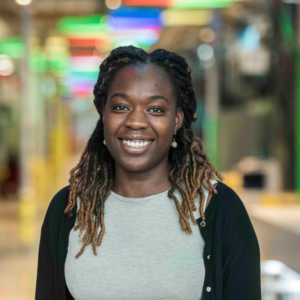 Folu Fabowale-Makinde, innovation associate, Plexal
Folu Fabowale-Makinde, innovation associate, Plexal
“What do you mean you don’t know this song? You’re Black!”
A colleague at my previous company thought it was OK to say this to me. My other colleagues with us didn’t think there was anything wrong either, or if they did they didn’t say anything. It seems like a minor, offhand comment that shouldn’t affect me but imagine receiving numerous similar comments every day at work. It begins to take a toll.
Microaggressions are the kinds of remarks, questions, or actions that are painful because they have to do with a person’s membership of a group that’s discriminated against or subject to stereotypes. And a key part of what makes them so disconcerting is that they happen casually, frequently and often without any harm intended.
“listen when we’re sharing our thoughts and experiences, take the time to learn about the racial inequalities that exist in the UK and be a visible ally”
Unfortunately they are commonplace in the business world, and this makes it hard for Black people and other ethnic minorities to feel comfortable in the workplace – especially when they are the only ones calling out these microaggressions.
Companies need to know that it’s not enough to hire a diverse workforce. Are you making them feel welcome? Are you listening to them? Are you calling out culturally insensitive comments? Are you shutting down hurtful stereotypes? Are you checking on their mental health and wellbeing?
The call to action is simple: listen when we’re sharing our thoughts and experiences, take the time to learn about the racial inequalities that exist in the UK and be a visible ally.
Don’t just be “not racist”, be anti-racist.
Folu has shared her resources.
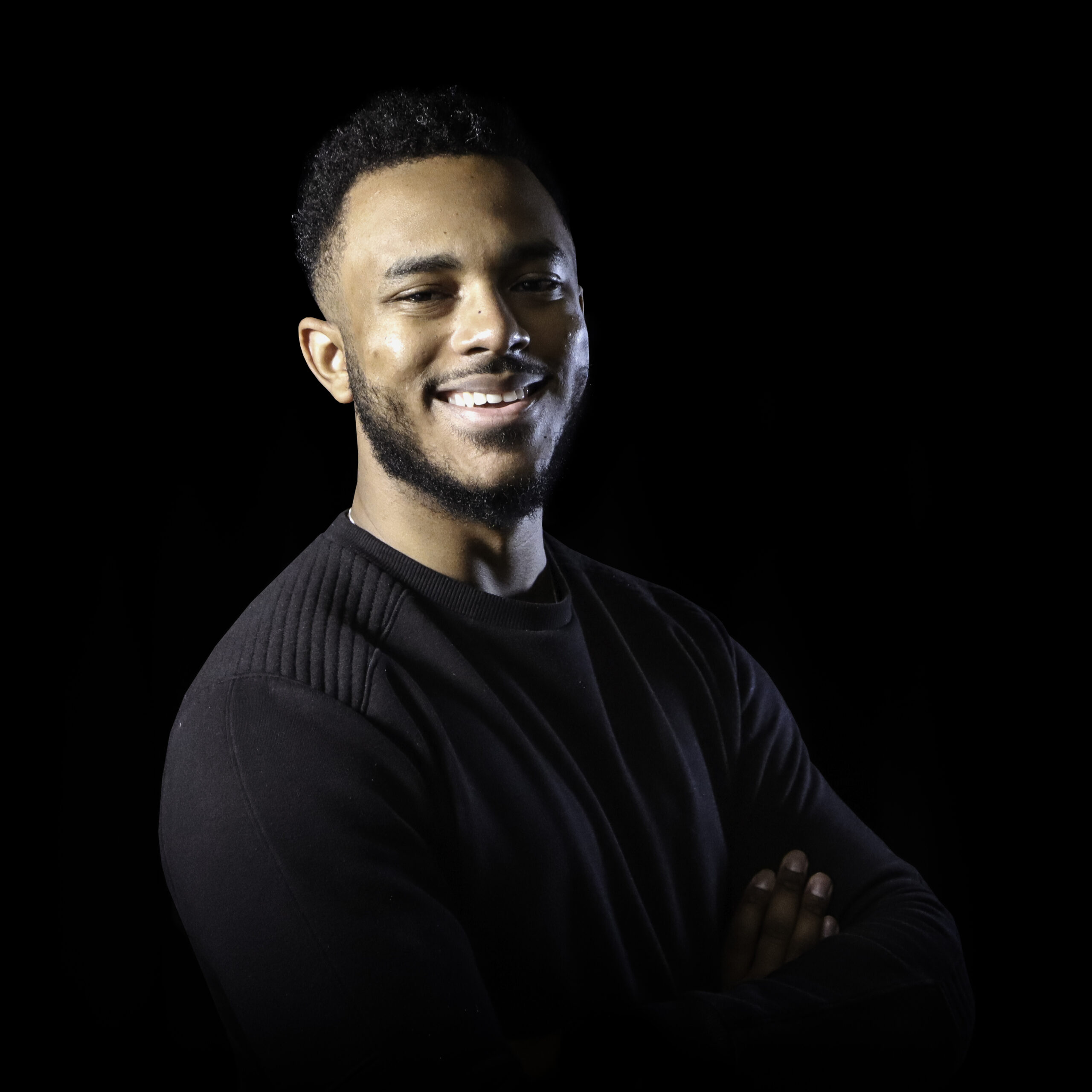 Dami Hastrup, founder and director, MOONHUB (a Plexal member)
Dami Hastrup, founder and director, MOONHUB (a Plexal member)
I have not known a single Black person, including myself, who has not faced racial prejudice, abuse or discrimination growing up. From some of the wildest stories that my father used to tell me right down to the small, suggestive career advice I received growing up from the school’s careers advisor who stomped on my dreams before they even had a chance to mature.
I remember that, despite everyone in my Maths A-level class getting predicted up a grade from their AS score (or at minimum, the same grade), I was the only person to be predicted a grade lower than the one I actually got.
Black people face discrimination in many places in life, but this statement isn’t meant to be bleak. I started MOONHUB for a variety of reasons but a big one was paving the way in a sector where Black people are under-represented. Seeing that only 0.9% of founders in Europe are Black really drove home how important it is to keep pushing.
When MOONHUB moved into Plexal, there was a certain feeling that we were in a bubble where all of a sudden me being Black seemed to matter as much as what trainers someone was wearing. People are there to create, build, explore and change the world in their own unique ways and never in my life had I been in such an environment.
The tech world needs to accommodate people from different backgrounds, including Black people. Even while beginning our seed fundraise, we’ve found some quite frankly surprising (but in some ways not so surprising) things that show how much a bubble Plexal is and how far other ecosystems and the entire tech ecosystem has to go.
Tech needs to understand that with different backgrounds come different problems, which then in turn provide new and innovative solutions that would only come from these conditions. This extends to and includes the Black population.
“I implore anybody reading this to make an extra effort to take a minute to reflect on any potential biases you may have”
I implore anybody reading this to make an extra effort to take a minute to reflect on any potential biases you may have, no matter how unconscious, and tackle them. Future generations should never have to be sat across a careers advisor, look directly in the eyes of a schoolteacher or look at society as a whole and see a world where a ceiling has been built before they’ve even had the chance to try.
Dami’s resources:
- An article in Sifted on a lack of funding going to diverse founders
- A Men’s mental health charity founded by Black men called Run with Purpose
- BADU Sports and BADU Community, fellow Plexal members who I admire and whose work I applaud
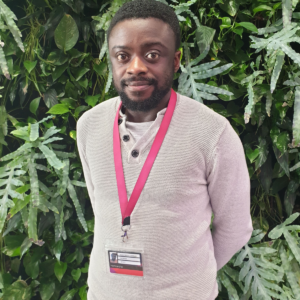 Sean Owusu-Sannah, communications and tech support manager, Shoppar (a Plexal member)
Sean Owusu-Sannah, communications and tech support manager, Shoppar (a Plexal member)
It’s heartwarming to see such a large number of people getting behind the Black Lives Matter movement, in which I sense opportunities for people who are keen to learn about how they can set an example and contribute towards the end of racial injustice. I believe a simple step that goes a long way is creating an inclusive ecosystem.
If you have members of your family, friendship group or workplace who carry a discriminatory sentiment towards Black people then challenge their beliefs and change their mindset.
“If you have members of your family, friendship group or workplace who carry a discriminatory sentiment towards Black people then challenge their beliefs”
Growing up as a Black man in London, I’ve encountered several instances of feeling alienated and have been forced to accept that there are many things I can’t do because of my skin colour. One of the most harmful aspects of racism, especially in professional contexts, is being denied opportunities for reasons I believe are out of my control. Recent events have given me hope and shown that anyone has the power to make a difference.
Another way you can show solidarity is by supporting Black creatives, whether they are a public figure or someone aspiring to make a name for themselves. Show appreciation towards Black influencers by discussing the steps they took to reach where they are now, investing in their creations, sharing words of encouragement and promoting their work to your network. Create a world where everyone is treated equally and nobody will have to be told what they can’t do because they’re Black. Thank you!
Sean’s list of people to support:
- Adande Thorne (YouTube creator)
- Afua Hirsch (presenter)
- Shola Mos-Shogbamimu (inspirational speaker)
- Idris Elba (actor)
- Jann Mardenborough (racing driver)
- Lewis Hamilton (racing driver)
- Marques Brownlee (YouTube creator)
- Michael Dapaah (actor/musician)
- Nicolas Hamilton (racing driver)
- Rory Reid (presenter)
- Theo Thomas (YouTube creator)
- Tobi Brown (YouTube creator)
- Tolulope Ogunmefun (actor)
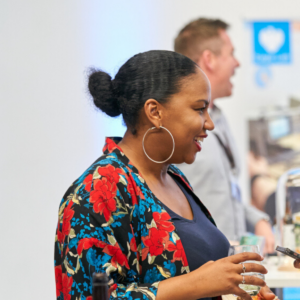 Louise Power, founder of iOrbit (a graduate of our OpenDoor accelerator)
Louise Power, founder of iOrbit (a graduate of our OpenDoor accelerator)
The last few weeks have been intense and emotional since I learned about the horrific, slow, and very painful murder of Mr George Floyd on 25 May 2020. Yet another Black man that has died at the hands of a white police officer. This has caused a global uprising against all forms of racial injustice against the Black community. Protests began in Minnesota where Mr Floyd was killed and spread across all 50 states in America, Europe, Brazil, and the rest of the world.
Government officials, celebrities, politicians, banks, the pope, and business leaders are among those who have spoken out against racial injustice. And some were allies on Tuesday 2 June 2020 when everyone on social media was posting #blackouttuesday to reflect the transgression and stand in solidarity with the Black Lives Matter movement.
Naturally, those of us who are passionate about change and equality have been having those conversations openly with family, friends, online and at work. The consensus is that this is the time for accountability. Why in 2020 are we still living in such an unfair, unequal society where only some people have opportunity and others do not?
When George Floyd died the way he did, I thought about my dad, my grandfather, my uncle, my friends, and the many stories I heard growing up about racism. My dad went blind in one eye back in 1990 when a rock was thrown at him in a racist attack. My son is a seven-year-old Black child. I don’t want him to ever experience anything like this.
In the tech industry, which I’ve worked in for the past two years, statistics show that tech companies employ far fewer women and under-represented groups than other industries. In Silicon Valley only 3% of employees from the top 75 tech firms are from Black minority backgrounds.
The disparity in the UK is even more stark, with only an estimated 1-2% of employees coming from BAME backgrounds. And when it comes to boardrooms, one survey found that out of 16 of the UK’s top tech companies only four out of 152 board positions were filled by people from a BAME background.
The tech world is growing fast and is the largest contributor to the economy. So why are British-born people who look like me not represented?
“When George Floyd died the way he did, I thought about my dad, my grandfather, my uncle, my friends, and the many stories I heard growing up about racism”
When I first started my entrepreneurial journey with iOrbit I had no real idea I was the exceptional minority in this space as a Black woman until I looked around. I live in one of the poorest boroughs in east London and but when I joined Plexal I was welcomed into the community where I worked among some of the largest corporations and some of the most innovative tech startups.
However this is not something for me to celebrate until there’s a level playing field and all BAME people feel they’re welcomed into these tech spaces as founders, are treated as an equal candidate for jobs and have a seat at the boardroom table.
And when it comes to approaching VCs, I lacked knowledge about what they’re looking for. The whole tech investment subject is literally a world within a world and separates people not only by race but also shared knowledge and social class.
Can things change in tech? The good news is the sector has an opportunity to get better if people are serious about accountability and they’re transparent about the industry being white and male-dominated. Nepotism should be called out and people from diverse backgrounds welcomed into the industry. There’s a lot of work to be done. Both the tech industry and the government need to invest more in education and training for people from BAME backgrounds to close the knowledge and access gap.
To change something ingrained and systematic, everyone is going to have to take responsibility to make tech a more inclusive space. Nobody wants to be the only Black person in the boardroom or part of the small group of employees that only marginally make up a company.
My latest entrepreneurial venture is my social enterprise The Power Hour Business and Community. Here we’re bridging the gap and having conversations between corporations and the BAME business community about business advice. We’re also giving them support to help them during and after COVID-19. As Shirley Chisholm, a Black American politician, said: “if they don’t give you a seat at the table, bring a folding chair”. That’s exactly what I’ve been doing.
Louise suggests you follow Cephas Williams, who started the 56 Black Men campaign.
More resources
Please find some below. This is a collaborative list compiled by many contributors, so please do your own research on any media you consume and causes you donate to. Got anything to add? Email us on connect@plexal.com
Black Lives Matter has also got an extensive collection of resources here.
Social media
- Rachel Cargyle
- Mums That Slay
- The Conscious Kid
- africanboheme
- Ericka Hart
- makemotherhooddiverse
- Sareta Fontaine
- Adele Jarrett-Kerr
- Tinuke Bernard
- Candice Brathwaite
- @perkin_amalaraj (whose resources compiled here)
Causes and charities
- Stop Hate UK
- Black Minds Matter UK
- Stephen Lawrence Trust
- Show racism the red card
- George FLoyd Memorial
- SARI – Stand Against Racism and Inequality
Read, watch and listen
- Forbes article: First, listen. Then, learn: Anti-racism resources for white people
- About Race podcast
- Why I’m No Longer Talking to White People About Race
- I Am Not Your Baby Mother
- The Good Immigrant
- Natives: Race and Class in the Ruins of Empire
- Brit(ish): On Race, Identity and Belonging
- Black and British: A Forgotten History
- Dear White People on Netflix
- The danger of a single story Ted Talk by Chimamanda Ngozi
For children


